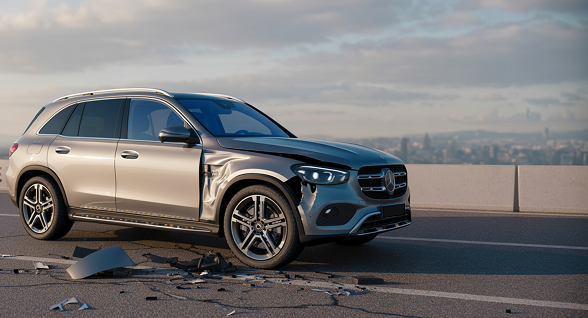If your vehicle is declared a total loss after an accident, that means insurance has decided it’s cheaper to replace the car than repair it.
This declaration can be made for a few different reasons, but the result is always the same: if your car is deemed a total loss, insurance will pay you the Actual Cash Value (ACV) for your vehicle but will not cover the cost of any repairs.
For supercar owners, especially those whose vehicles are rare, collectible, or otherwise irreplaceable, a total loss can be a tough pill to swallow. We’ve helped countless owners of exotic and luxury vehicles navigate this hurdle and maximize or appeal total loss claims.
When is a Car a Total Loss?
To insurance companies, a car is a total loss if the cost of repairs is equal to or exceeds a certain percentage of the car’s pre-accident market value. A car could also be declared a total loss if the damage is so severe that repairs are impossible.
One way insurance calculates total loss is by comparing repair costs to the vehicle’s pre-accident ACV. If the repair costs are a certain percentage of more of the ACV, it’s a total loss. This percentage varies by state, with an average of 75%. Another method is the total loss threshold, which considers a vehicle’s salvage value in addition to its ACV. If the cost of repairs plus a car’s salvage value exceeds its ACV, it’s a loss.
Total loss gets a bit tricky with exotic/luxury vehicles, since both ACVs and repair costs tend to be quite high. Things are further complicated by the fact that adequate replacements may be hard to come by (or more than insurance wants to pay). For those and other reasons, it’s essential to work with experienced lawyers who can defend your rights with insurance.
Other Factors That Impact Total Loss
Scarcity of parts, repair completion times, and the possibility of viable replacements can all impact a total loss decision. So too can basic factors of depreciation, and whether you own a car outright or still owe money on it.
The factors above, combined with the fact that adjusters tend to undervalue high-end vehicles, mean that supercar owners must be extra vigilant about overseeing the damage inspection process and ensuring that insurance assigns a correct pre-crash ACV.
Total Loss Thresholds By State
Many states have fixed total loss thresholds mandated by law. For those that don’t, the total loss formula is used to compare repair costs to a car’s pre-accident ACV minus its salvage value. If ACV is $100,000 and salvage value is $60,000, for example, repairs must be less than $40,000 in order to justify payment.
Thresholds have a big impact on claim outcomes, so it’s important to know what you’re up against in your specific state of incident.
What to Do if Your Luxury Vehicle is Declared a Total Loss
There are several ways to respond to a total loss decision. Which way you go depends on the specifics of your claim, including whether or not you believe your vehicle was properly valued and damage was fairly assessed.
Your options after a total loss declaration include:
- Accepting the decision and settlement
- Disputing the total loss determination
- Keeping your vehicle with a salvage title
Keep in mind that there is no diminished value in total loss scenarios. This is because, by definition, a total loss vehicle has no post-repair value to be paid out. If you believe your vehicle is not truly a total loss, you could try to claim diminished value instead, but it can be an uphill battle. Strengthen your case with a professional appraisal, and bring on luxury car lawyers for specialized support.
Looking to Maximize or Appeal Your Total Loss Settlement?
Now that you know the basics of what is a total loss vehicle?, it may be time to decide what you want to do about a total loss decision on your supercar.
Our team at SuperCarClaims.com helps luxury and exotic car owners navigate total loss claims, from offering expert supercar value valuations to maximizing total loss settlements. We can even appeal a claim on your behalf to make sure you get the right form (and amount) of compensation.
Contact us today for assistance, and don’t tackle a complicated total loss claim on your own.


